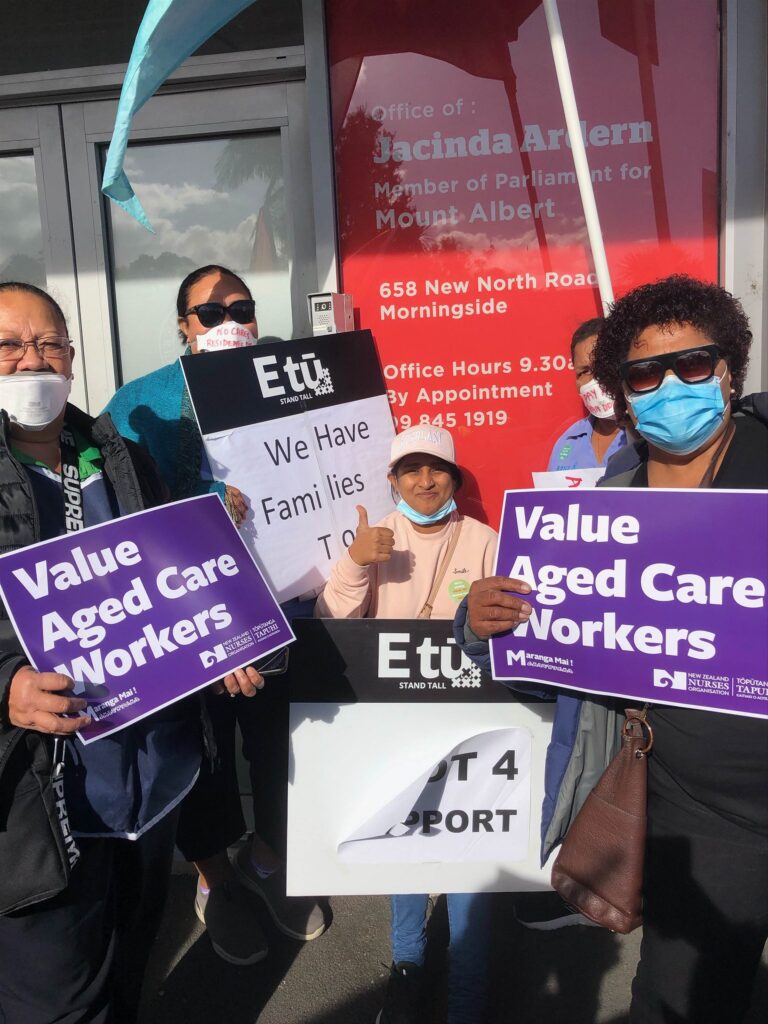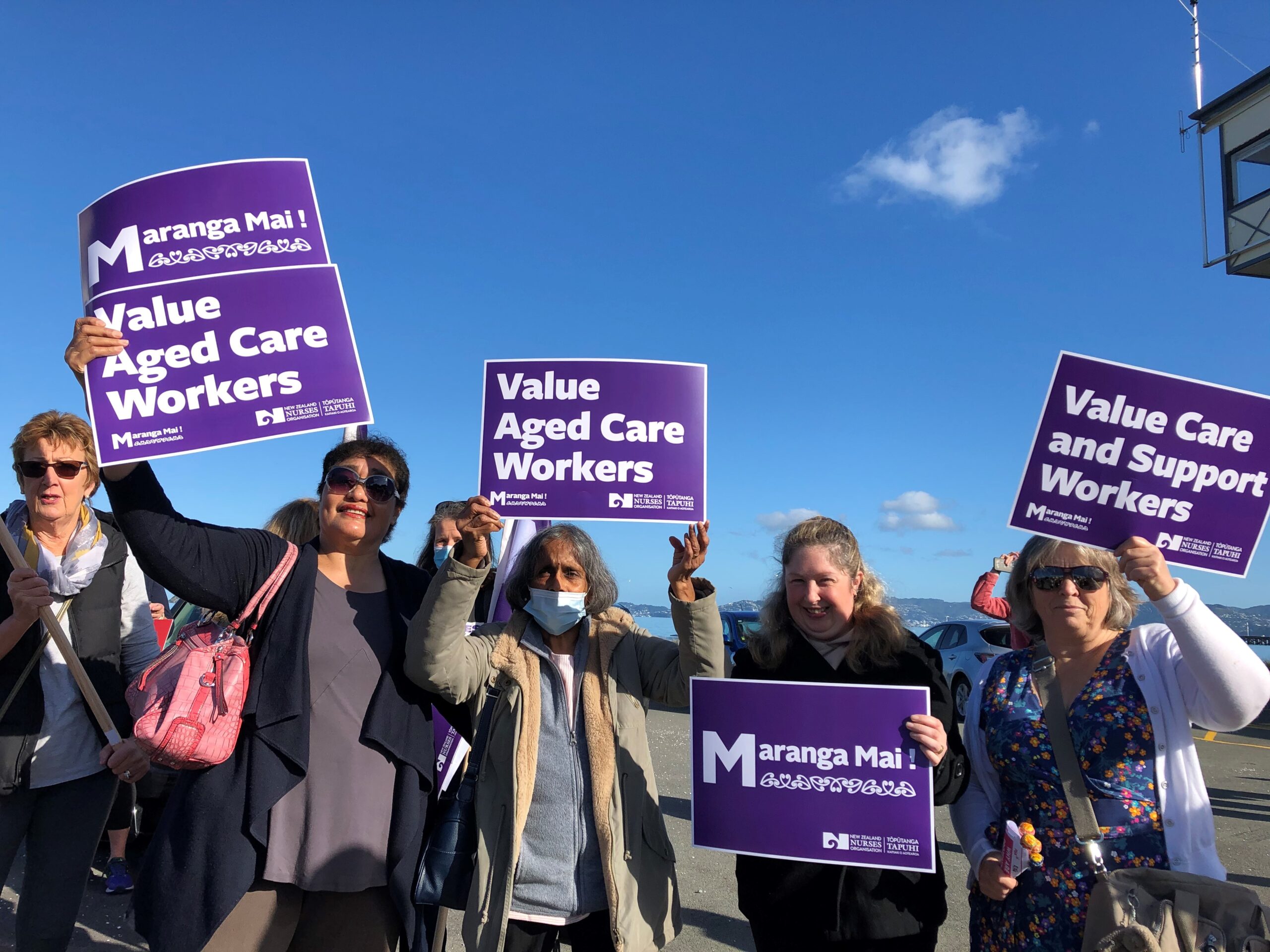 Wellington aged care health-care assistant (HCA) and NZNO delegate, Atele Pepa (pictured above, second from left), said she wanted better pay rates locked in, to address a shortage of workers. “My hope is to attract a lot of younger generation into the workforce, because we’re all getting old. I’m getting old!” Pepa said.
Wellington aged care health-care assistant (HCA) and NZNO delegate, Atele Pepa (pictured above, second from left), said she wanted better pay rates locked in, to address a shortage of workers. “My hope is to attract a lot of younger generation into the workforce, because we’re all getting old. I’m getting old!” Pepa said.
“I want to get the message through and I want people to be better off than what they’re getting now. The main goal I have is for people to enjoy the job they do.”
Many care workers ended up leaving after the 2017 gains, as some facilities cut their hours to accommodate the higher salaries, Pepa said.
In 2017, after nearly two years of legal battles, a historic $2 billion care and support workers pay equity settlement locked in pay increases for workers until July 2022, after finding historic, sex-based discrimination meant they had long been underpaid. It was fronted by Lower Hutt caregiver Kristine Bartlett, and negotiated by NZNO, the PSA and E tū.
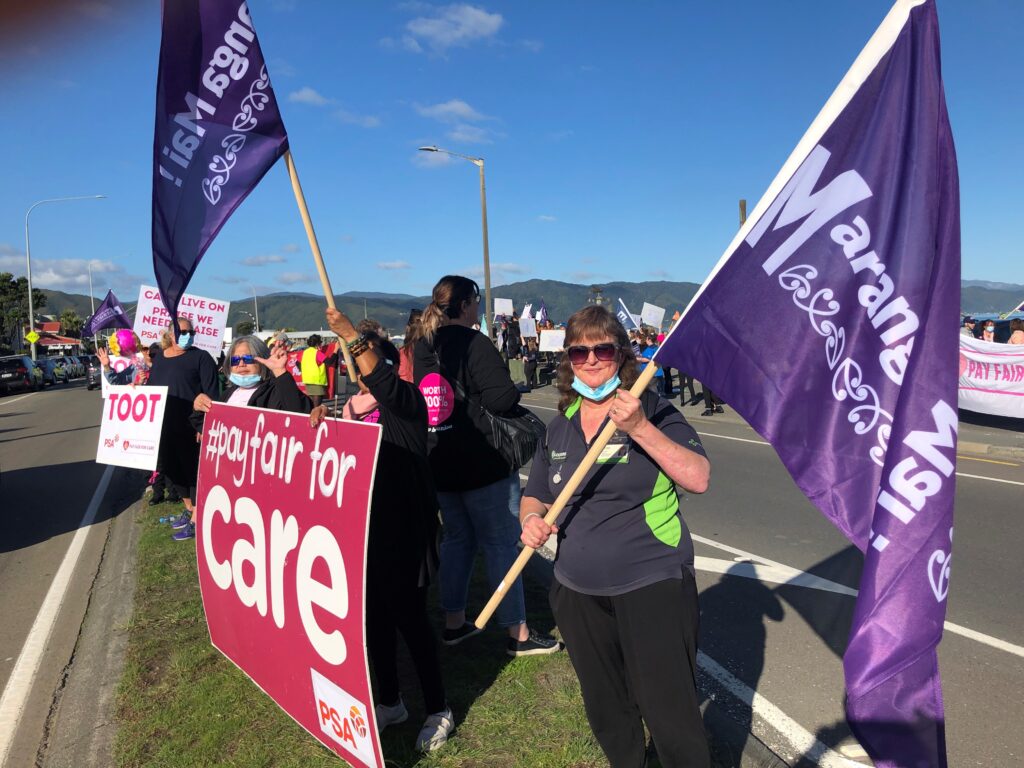
Pepa said her Lower Hutt facility was short-staffed “every single day”. Aged care had been going through staffing issues for “years and years” and “they’re not going to fix it unless we push them,” Pepa told Kaitiaki Nursing New Zealand.
“I would like to have some decent pay! The cost of living has skyrocketed and a lot of people are finding it hard to make ends meet.”
Pepa said workers needed an increase in line with inflation (6.9 per cent) – to keep up with the cost of living.
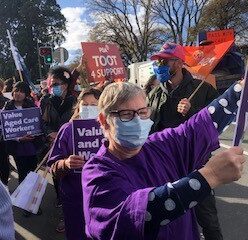
The work was rewarding but draining, especially without enough staff, she said.
It was “mentally, physically, spiritually and emotionally” demanding work, Pepa said. “I’m one of these people who work six days a week most of the time, and my husband is getting annoyed with it as I don’t have time for my family anymore. We can’t do anything as a family because I’m always tired.”
With a double-income, Pepa’s family was able to get by on current pay rates, but single parents and mothers with young children, were “doing it tough” and finding it hard to make ends meet.
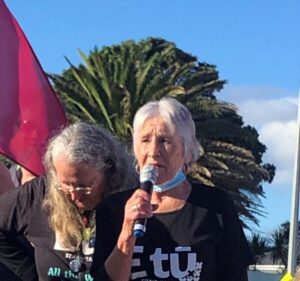
“I want to get the message through and I want people to be better off than what they’re getting now. The main goal I have is for people to enjoy the job they do.”
“We can’t do anything as a family because I’m always tired.”
That would benefit communities, as well as workers, she said.
NZNO industrial advisor aged care Lesley Harry said the focus was on renewing the 2017 care and support legislation — which runs out on June 30 — and getting a decent pay increase for members.
NZNO, PSA and E tū represented many of the estimated 65,000 care and support workers in Aotearoa — a large and predominantly female workforce.
Bargaining was continuing this week after the Government’s offer of less than three per cent, against a 6.9 per cent inflation rate. Harry said.
Rallies were held in Auckland, Hamilton, Wellington, Christchurch, Dunedin and Invercargill on Monday afternoon. Members are also being encouraged to sign and share a petition in support of care and support workers . Over 10,000 had so far signed the petition, being presented to Parliament tomorrow (Tuesday), Harry said.
